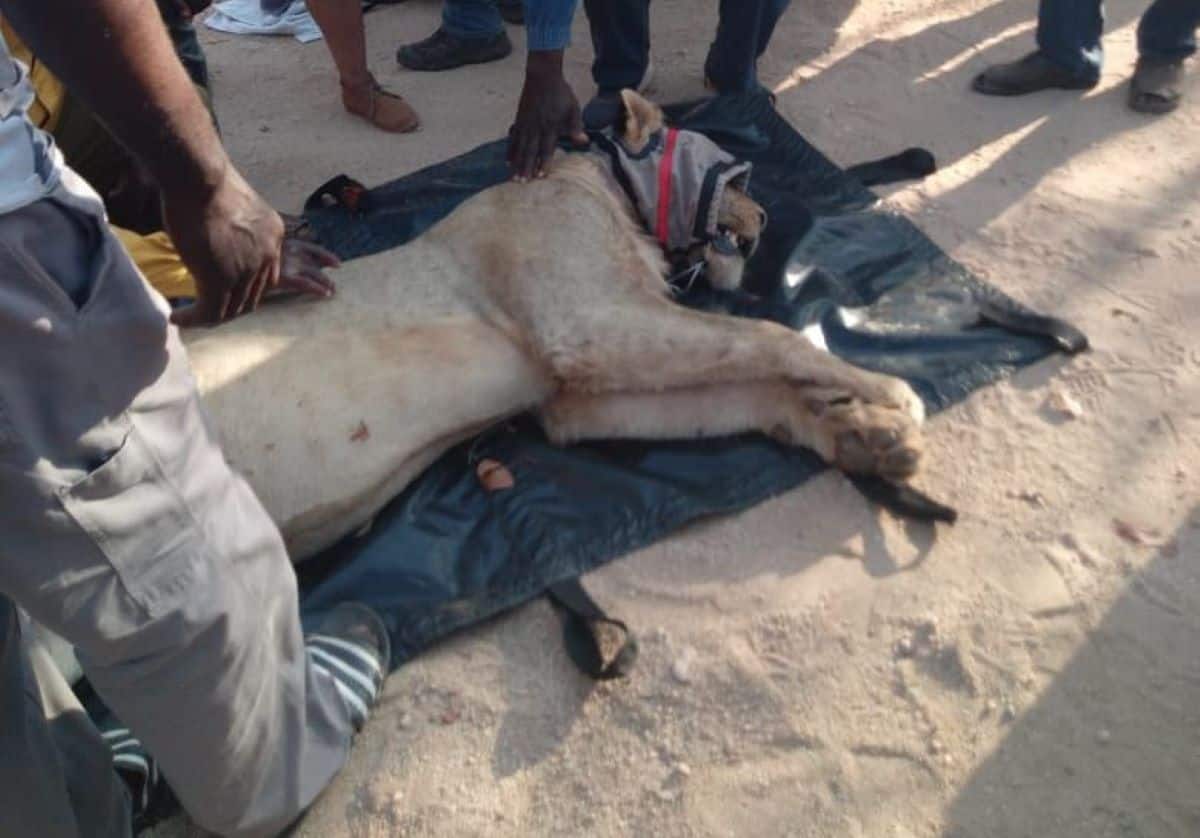The lion that killed livestock in the Giyani–Phalaborwa boundary area is captured for relocation.

SANParks rangers, the Endangered Wildlife Trust (EWT) and a team from the Limpopo department of economic development, environment and tourism have captured and relocated a male lion from Letaba Ranch north of Phalaborwa to the northern Kruger National Park.
This is after the lion killed livestock in the Giyani–Phalaborwa boundary area on 16 and 21 September, 2025.
“This success demonstrates the importance of collaboration between government, conservation agencies and the private sector,” said MEC Tshitereke Matibe.
“Our rangers and partners worked tirelessly to secure both our communities and our wildlife heritage. I extend my heartfelt gratitude to every individual and organisation that played a role in this delicate and urgent operation.”
The MEC added that there are reports of two other lions currently roaming in the Mtimkhulu Nature Reserve outside Giyani.
Plans are underway to capture and relocate them to the Kruger National Park. The two lions are not in communal lands and have not attacked livestock.
“Our province’s strength lies in our ability to protect lives, livelihoods and the biodiversity that makes Limpopo a global treasure. This relocation is proof that when we work together, we can achieve both.”
ALSO READ: Woman tells of how she tried to fight off lion with her fists after it attacked her husband
Matibe appealed to communities living near nature reserves and park boundaries to avoid tampering with or cutting fences to access wood or other resources.
“Respecting these boundaries is essential for your own safety, the protection of livestock, and the well-being of our wildlife,” he said.
Human-wildlife conflict
The Giyani-Phalaborwa area is not new to human-wildlife conflict, and this was not the first government-led rescue mission.
On 5 June, the Phalaborwa Natural Heritage Foundation spent the night capturing five lions that were roaming freely in the Phalaborwa area.
“Our dedicated team worked alongside wildlife vets, local authorities and the Endangered Wildlife Trust to dart and safely relocate them back to Greater Kruger,” said the organisation.
“This mission highlights the importance of measures to avoid human-wildlife conflict. We strive to protect both our community and animals from harm’s way.”
ALSO READ: Male lion captured after roaming Mbombela for days
On Friday last week, five elephants were on the verge of entering a conflict zone near a human settlement.
“Acting quickly, we were able to guide them to safety and prevent a dangerous situation,” said the organisation.
Lion caught in snare
Snares have also become a significant challenge for animal conservationists, who spend time and money removing them and rescuing animals caught in them.
Last month, the Phalaborwa Natural Heritage Foundation team and volunteers removed 111 snares on two different properties.
During these operations, the team discovered the remains of a lioness and a vulture that had been killed in the snares. They also discovered a well-hidden snare line.
“We found remains of multiple impala and kudu that were killed in this snare line as well over a period of time, and these carcasses have attracted predators into this snare line.
Luckily, we found the snare line and removed it before it created any more damage, but we need to try to get these poachers to stop the carnage in that area. It is easier said than done, but we will keep fighting.”
Support Local Journalism
Add The Citizen as a Preferred Source on Google and follow us on Google News to see more of our trusted reporting in Google News and Top Stories.






